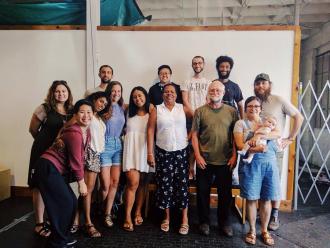Join the NASCO Board of Directors
Submitted by Ratih on Mon, 09/24/2018 - 4:42pmAre you excited about the cooperative movement and eager to participate in the world of cooperatives beyond your home cooperative?
Do you have experience with board governance, grassroots fundraising, meeting facilitation, co-op management, or committee leadership?
Do you want to be part of a bi-national organization that develops new cooperatives, manages common equity houses, and reaches thousands of cooperators in the U.S. and Canada with cooperative education?


